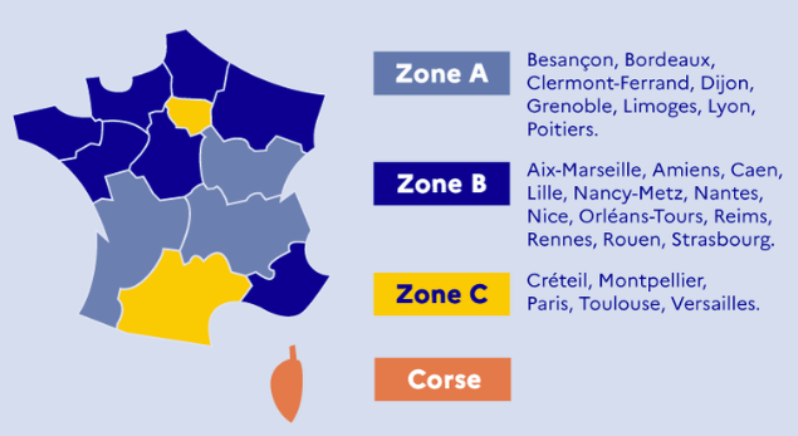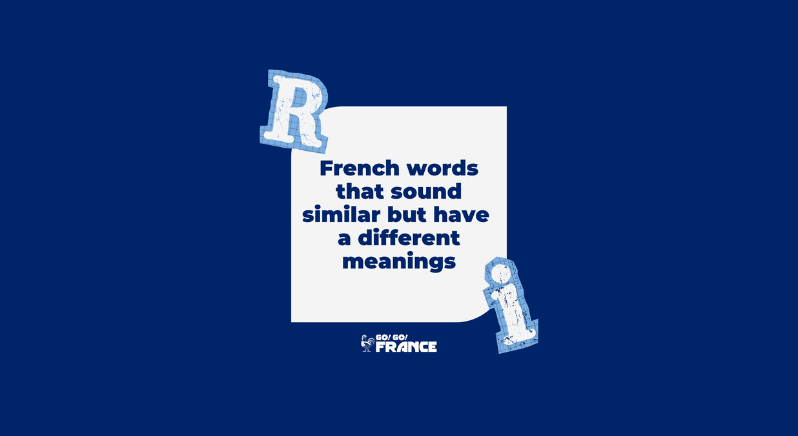France’s education system offers a diverse range of pathways, including vocational schools, colleges, and Institutes of Technology (Instituts Universitaires de Technologie, IUT) catering to a wide array of professional aspirations.
This guide is designed to illuminate the path for international students as they navigate through the intricacies of French vocational schools, covering aspects like admissions, degrees and credits awarded, grading and evaluation systems.
Admission Modalities
Access to colleges, IUTs and vocational schools in France typically requires a baccalauréat or an equivalent diploma. However, international students must often demonstrate proficiency in French, usually through standardized tests like the TCF (Test de Connaissance du Français) or DELF/DALF exams. For specific programs, additional entrance exams or interviews may be part of the selection process. It’s essential to check each institution’s requirements well in advance and prepare accordingly.
If you are aiming to apply for an IUT or vocational school in France, you will generally need to use the Parcoursup platform for your application process. Parcoursup is an online application portal designed for French and international students to apply to first-year undergraduate programs including vocational training and IUT programs.

Degrees Awarded and ECTS
Colleges, IUTs and vocational schools in France can award various degrees, including vocational certificates, Bachelor’s (Licence), Master’s, and Doctorate degrees, aligned with the European Credit Transfer and Accumulation System (ECTS). Although the specific number of credits can vary depending on the program, a full academic year is typically worth 60 credits.
Read more about ECTS here: https://gogofrance.com/en/blog/european-credit-system-ects/
Vocational schools typically grant a Brevet de Technicien Supérieur (BTS) diploma. IUTs offer programs that lead to the award of a Bachelor Universitaire de Technologie (BUT). Colleges typically grant Licence (Bachelor), Master, and Doctorat (PhD) following the LMD system or RNCP titles which are diplomas registered in the Répertoire National des Certifications Professionnelles (the French national framework for professional qualifications).
Read more about French diplomas here: https://gogofrance.com/en/blog/french-diplomas-recognition/

Grading System
The French grading system might seem daunting at first, with scores typically ranging from 0 to 20. The minimum passing grade is usually set at 10 out of 20. Achieving this score means that the student has met the basic requirements of the course or program.
Some IUTs allow for grade compensation, meaning that higher grades in some modules can compensate for lower grades in others, provided that the overall average is at least 10. The grading in IUTs often involves a combination of continuous assessment throughout the semester (including short tests, group projects, and mid-term exams) and final exams.
Evaluation System
Evaluation methods vary, often including a mix of continuous assessment, project/group works and most importantly formal exams called “partiels”. Partiels typically occur at the end of a semester and are crucial for assessing a student’s understanding and mastery of the course material covered during the semester. The performance in these exams often plays a key role in determining a student’s final grade for the course and whether they have successfully earned the associated ECTS credits.
For higher-level degrees like Master’s degrees awarded by some colleges, significant weight is given to dissertations or theses. These are rigorously assessed and are crucial for the successful completion of the degree.

International Recognition
Degrees awarded by colleges, IUTs or vocational schools in France are generally recognized outside of Europe, especially in countries and institutions that have formal agreements or mutual recognition policies with France or European educational standards.
The use of the European Credit Transfer and Accumulation System (ECTS) facilitates the recognition of French degrees within Europe and in other countries that recognize the ECTS framework.
Additionally, France has numerous bilateral agreements with countries around the world, aimed at recognizing academic qualifications mutually. These agreements significantly ease the process of degree recognition, ensuring that the professional practices you’ve learned at your vocational school in France are valued in your home country.
Plan Your Study In France
At Go! Go! France, we’re dedicated to making your dream of studying in France a reality. Through our tailored services, comprehensive support, and student-first approach, we simplify the visa application process and pave the way for your educational adventure in France. When you feel ready to start, contact Go! Go! France team here to get your life and study in France journey started.











